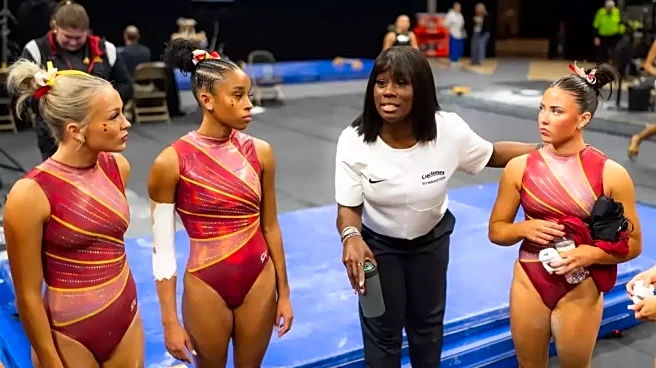Rapid Read • 8 min read
The production company AI Film has filed a lawsuit against Rebel Wilson, accusing her of blocking a distribution deal for her directorial debut, The Deb. The lawsuit claims Wilson threatened legal action to prevent the film's release, aiming to purchase the rights herself. AI Film alleges breach of contract and seeks damages, an apology, and a court order to stop Wilson from making false statements about misconduct by the film's producers. Wilson had previously reported inappropriate behavior towards the lead actress, Charlotte MacInnes, and theft of movie funds, which led to a defamation suit from the producers. Wilson countersued, maintaining her accusations, which MacInnes denied.
AD
This legal battle highlights the complexities and challenges within the film industry, particularly regarding allegations of misconduct and contractual disputes. The outcome could impact the release of The Deb, affecting the careers of those involved and the financial interests of the production company. It underscores the importance of addressing harassment claims and the potential repercussions for public figures and production entities. The case also illustrates the influence of legal strategies on film distribution and the potential for reputational damage in the entertainment sector.
The lawsuit's progression will likely involve further legal maneuvers from both parties. Rebel Wilson's intent to purchase the film rights could lead to negotiations or additional legal challenges. The production company may seek to resolve the dispute to facilitate the film's release, while Wilson's public statements and legal actions could continue to shape the narrative. Stakeholders in the film industry will be watching closely, as the case may set precedents for handling similar disputes and allegations in the future.
The situation raises broader questions about the ethical responsibilities of filmmakers and production companies in addressing harassment claims. It also highlights the potential impact of public relations strategies on legal disputes and film releases. The case may influence industry standards for transparency and accountability, prompting discussions on how to balance creative control with ethical considerations.
AD
More Stories You Might Enjoy











